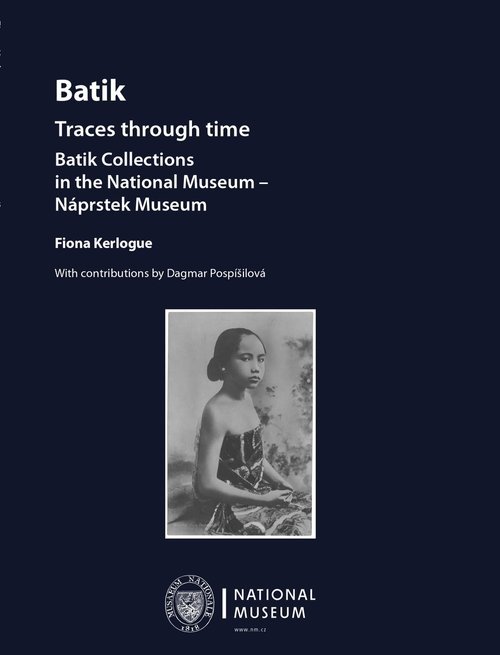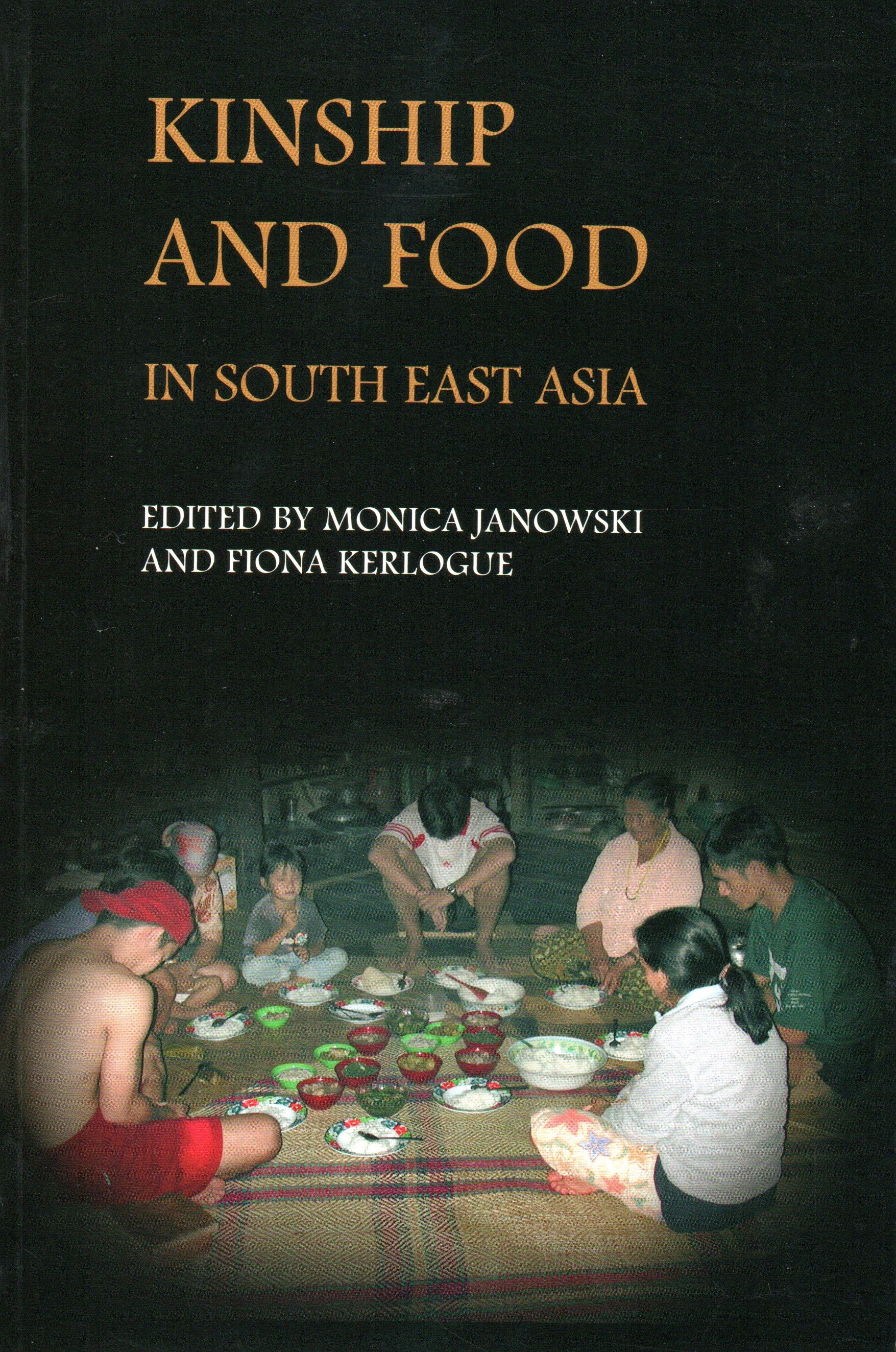Books
Batik: Traces through time
Batik Collections in the National Museum - Naprstek Museum
with contributions by Dagmar Pospíšilová
Aspects of the art of batik of Java have been discussed in countless publications. This study raises several questions which have been underexplored. What is the evidence for batik’s origins in Java? How did batik develop into an industry employing thousands of people? What was the effect of the introduction of wax printing and of aniline dyes? Does batik carry meaning? When did batik depicting wayang figures and calligraphy appear and why? And what drew European collectors to batik in the early 20th century? This volume explores these questions, drawing on contemporary sources and providing a wealth of new insights.
ISBN: 978-80-7036-673-8 (print)
978-80-7036-679-0 (pdf)
Pages: 160
Details: 154 illustrations
Publisher: National Museum, Prague
Date of publication: 2021.
Collecting Experience in the 1930s: Indonesian and Pacific Collections of Růsžena Charlotta Urbanová in the Náprstek Museum, Prague (with Dagmar Pospíšilová).
This study focuses on the collections made by Růsžena Charlotta Urbanová during her travels in the 1930s in the islands of the Pacific and parts of the Dutch East Indies, now Indonesia. The collection reflects the material produced locally at that period. It includes textiles, paintings, puppets, bark cloth, wood carving, metalwork, jewellery and basketry. Why did she collect what she did? Drawing on contemporary accounts, the monograph addresses the circumstances in the region and the opportunities for collecting at the time. The collection, like many other museum collections, speaks as much of human experience as it does of art.
ISBN: 978-80-7036-577-9
Pages: 272
Details: 245 illustrations
Publisher: National Museum, Prague
Date of publication: 2018
Kinship and Food in Southeast Asia (edited, with Monica Janowski)
This book offers eleven chapters covering a range of societies in different parts of Southeast Asia. It examines ways in which food is used to think about and bring about ties between generations and within generations - including between the living and the dead - in particular through the feeding relationship. Significant parallels emerge between the societies covered: in the role of rice especially; in gender complementarity in relation to different foods; in the belief that food and drink carry fertility, ‘blessings’ or ‘life force’ from ascending to descending generations; and in the use of the feeding relationship to generate hierarchy. These parallels suggest that there may be underlying similarities in cosmology between these widely varying societies.
ISBN: 978-87-91114-93-9
Pages: 304
Details: Illustrated
Publisher: NIAS Press
Date of publication: 2007
Wrapping Japan: textiles and costume
This exhibition catalogue explores the role of textiles in wrapping gifts and people in Japan, in ceremonial and everyday contexts in the Meiji to Taisho periods. It also includes a section on Japanese textile techniques, and an overview of the Japanese collections at the Horniman Museum in London.
ISBN: 1-903338-03-4
Pages: 71
Details: 36 colour plates
Publisher: Horniman Museum
Date of publication: 2007
The Arts of Southeast Asia
A comprehensive introduction to the region’s art and culture, from prehistory to the modern period, this volume in Thames and Hudson’s World of Art series examines the roots and development of the arts of Southeast Asia. It explores some of the great artistic achievements on the mainland and in the islands, tracing the influence of indigenous beliefs, world religion, and trade.
ISBN: 0-500-20381-4
Pages: 224
Details: 183 illustrations, 102 in colour
Publisher: Thames and Hudson
Date of publication: 2004
Batik: Design, Style and History
The book provides a clear overview of the batik of Indonesia, with chapters on origins, regional traditions, motifs and meanings, modern influences, batik as costume, and batik in art. It is lavishly illustrated with examples taken from a variety of sources, the majority from the fine collections of Rudolf Smend. Batik is placed in technical, historical and cultural contexts, and while the photographs reveal the strong aesthetic sensibilities at play in the creation of batik, the book points to the range of factors which together underly the significance of this quintessentially Indonesian art form.
ISBN: 0-500-28477-6
Pages: 192
Details: 204 illustrations, 173 in colour
Publisher: Thames and Hudson
Date of publication: 2004
Performing Objects: Museums, Material Culture and Performance in Southeast Asia (edited)
Objects are often seen as having lives of their own. For some, the final stages of this life are spent in a museum. The essays in this collection explore some of the roles performed by objects from Southeast Asia whether before, during or after acquisition by a museum, in post-colonial Southeast Asia or in Europe. What emerges as key is the point of intersection between lives and cultures which the objects represent, whether as sites of conflict, of negotiation, or of connection.
ISBN: 1-903-33801-8
Pages: 188
Details: 57 black and white illustrations
Publisher: Horniman Museum
Date of publication: 2004
Scattered Flowers: Textiles from Jambi, Sumatra
The first publication in English to focus on the batik tradition of Jambi, this small book was written to accompany a display in the Brynmor Jones Library, the University of Hull. Based on field research in Jambi, it places the batiks in their historical and social context, explaining reasons for confusion in early Dutch accounts concerning their origin.
ISBN: 0-85958-909-9
Pages: 51
Details: 11 colour and 7 black and white illustrations
Publisher: The Department of South-East Asian Studies, University of Hull
Date of publication: 1996







